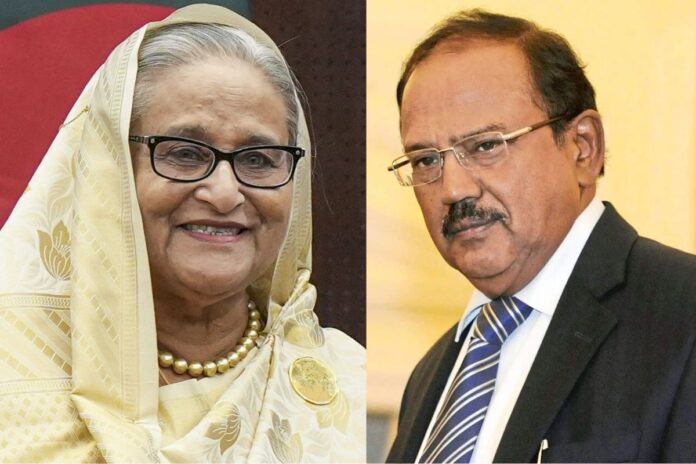Turmoil in Bangladesh which led its Prime Minister Sheikh Hasina to resign and fled to India for shelter kept Narendra Modi government in the most delicate diplomatic crisis.
NSA Ajit Doval and the R&AW have come under flak for failing to alert the Indian government of the precariousness of Sheikh Hasina’s position after the violent demonstrations against her first escalated, even though India has an embassy and four consulates in Bangladesh.
Incidentally, 49 years ago, Indira Gandhi had been similarly rattled by the massacre of Sheikh Mujibur Rahman and his family on August 15, 1975 and had feared parallel events taking place in India, where she had recently imposed an Emergency.
Gandhi told her friend Pupul Jayakar that she apprehended that she was the next target. Security precautions on Independence Day were unprecedented. But R&AW was not caught napping then, R&AW chief R N Kao had warned Mujib repeatedly of a possible uprising.
Moreover, when Sheikh Hasina fled to the Hindon Air Force base in a Bangladesh air force jet on August 5, what the Indian government did not bargain for was that she would be stuck in India for a protracted period.
India expected she would move to the UK within a few hours. Bangladesh leaders are now demanding Hasina’s extradition and India does not want to further harm relations with the new regime.
Meanwhile, Hasina’s ouster after days of protests has badly shaken Mamata in neighbouring West Bengal. Many attribute Mamata’s strident statements on the medical intern’s rape an overreaction, with the police serving notices against a TMC MP and senior doctors, to fears of a repeat of the events in Bangladesh.

